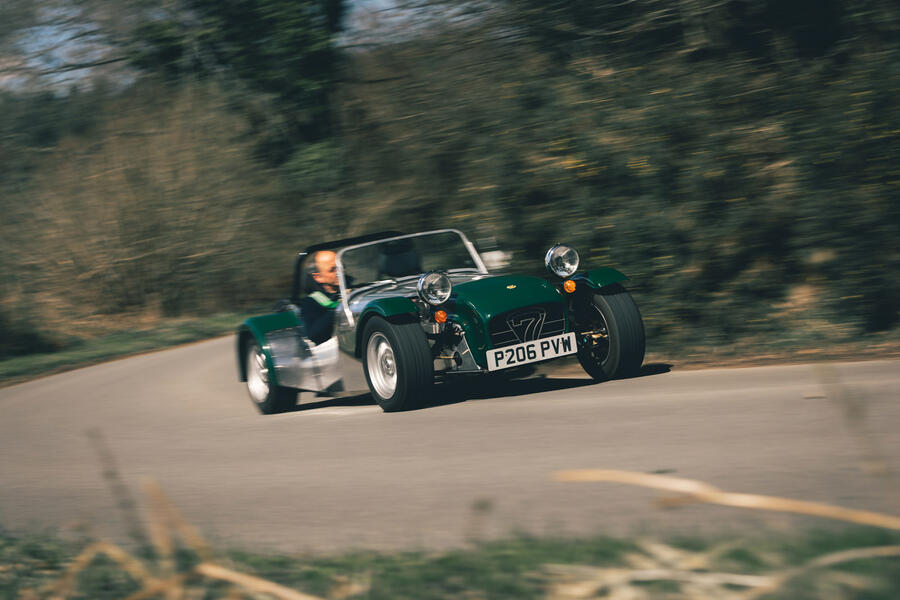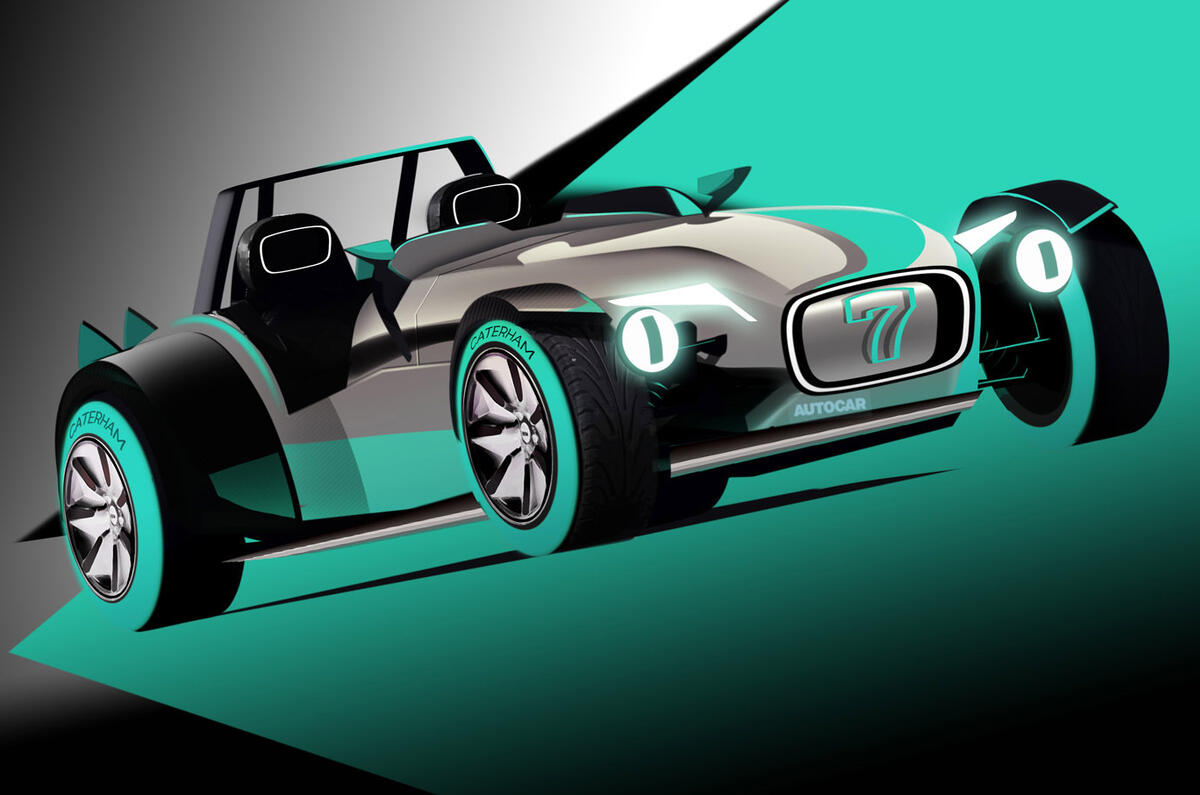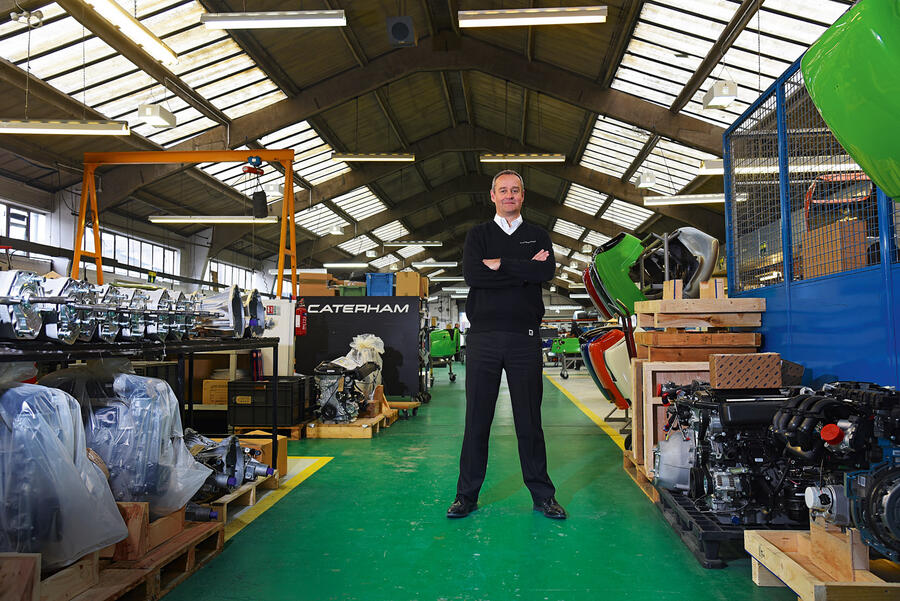Caterham is working to safeguard the future of the Seven in the face of looming homologation and legislative hurdles – and is set to launch its landmark first EV in the coming years.
The British specialist brand was recently acquired by retail group VT Holdings, a division of which serves as the main importer of Caterham cars into the Japanese market.
CEO Kazuho Takahashi brought some 25 years of experience in high-profile motorsport, and Caterham CEO Graham Macdonald is confident that he’s committed to the survival of the brand.
“He loves the brand and he knows that we haven’t got endless money pits,” said Macdonald. “However, he’s determined to see this brand continue for another 50 years.”
Crucially, the acquisition will provide funding and security as Caterham gears up to launch a zero-emissions version of the Seven.

Macdonald affirmed that the priority is to ensure that any electric version of the diminutive two-seater “rides and handles like a Caterham”.
To that end, the ‘EV Seven’ will be developed with a focus on keeping weight down in an effort to preserve the model’s trademark agility and pace.
The suspension geometry and other aspects of the chassis will be recalibrated to mitigate the extra heft of the battery and electric motors, for example, and it will go without the weighty associated systems that are common on mainstream EVs, such as regenerative braking.
In line with reducing kerb weight, the EV will remain characteristically basic and is highly likely to maintain the Seven’s traditionally minimal, open-wheel silhouette.















Join the debate
Add your comment
I suspect most readers will be choking on their 97RON at the idea of a FWD Caterham Clarkey, but I can see the sense in your suggestion. Perhaps an option for another brand.
Mind you, the Lotus Elan was FWD of course - some said it was the best handling FWD available.
This will come across as heretical but I do wonder if the best layout for a simple, country lane focussed, 2wd electric sports car would be to have a seperate motor for each front wheel? Much more regen available through the front tyres and torque vectoring could really help with turn in and balance. Wouldn't be able to do power slides but I grew out of those some time ago.
In theory, this sounds like my perfect fun car.
Light(ish) weight, stripped out, open top, cheap to run, not much to go wrong, handles well (hopefully) and fast.
But I reckon the eventual price tag will make me think twice somehow.